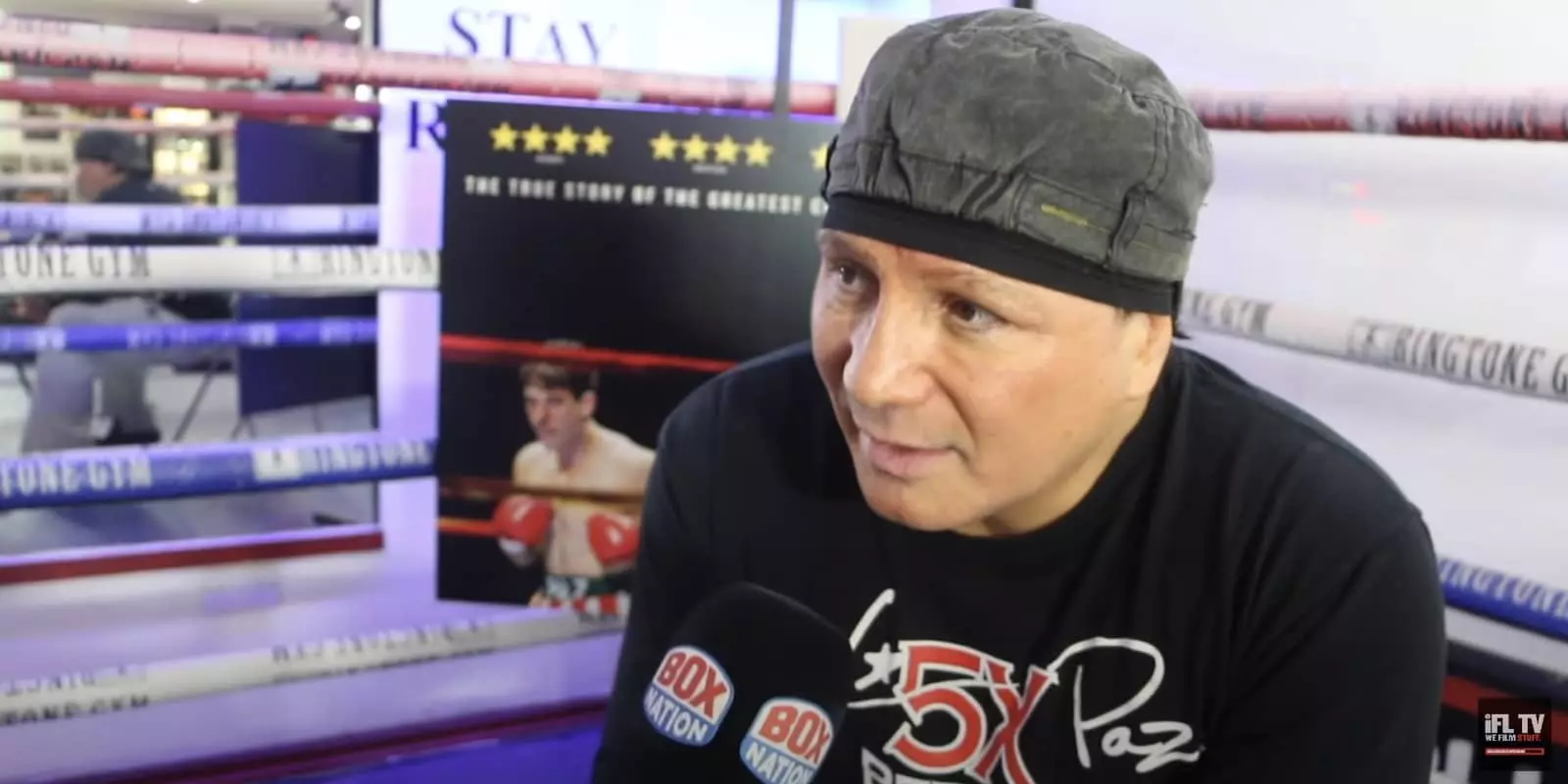When legends gather, they often bring with them not just triumphs but also the ghosts of their past—a reflection of rivalries that shaped their careers. Recently, the boxing world witnessed such a poignant moment at The Hall of Fame ceremony, where Vinny Paz, Manny Pacquiao, and Michael Nunn were honored for their monumental contributions to the sport. However, amid this celebration of excellence, it was Paz’s still-festering animosity towards his long-time rival, Greg Haugen, that presented a raw and surprising note of unresolved tension.
The Hall of Fame Celebration: A Mixed Blessing for Paz
At a time when accolades were meant to evoke nostalgia and gratitude, Paz opened the floodgates of emotion as he spoke candidly about Haugen. The tone of celebration quickly shifted when Haugen’s name emerged from the conversation. Even in death, Haugen remains a figure of deep-seated animosity in Paz’s psyche. Asked about his feelings, Paz’s words cut through the atmosphere: “I hate him. I know he died, but I still hate him.” This statement reveals that some feelings, especially those linked to pride and competition, are not easily laid to rest.
Their stories as boxers are entwined; they fought three significant matches, with Paz triumphing twice and Haugen once. These fights weren’t just matches—they were intense bouts that pushed both men to the limits of their endurance and will. They battled not just each other but also the personal narratives they had crafted around themselves: champions versus the supposed underdogs, and the relentless psychological warfare that often accompanies such sports.
Emotional Residues: Grudges That Last a Lifetime
Paz’s persistent dislike for Haugen showcases a facet of human nature that many might find unsettling, particularly in a society that tends to vilify long-held grudges. This animosity raises questions about the psychology of sports—how victories and defeats shape our identities and the emotional struggles athletes face even after they hang up their gloves. The fire of competition can ignite passion, but it can also give birth to bitterness that refuses to die.
Importantly, when Haugen was alive, he reciprocated the feelings, showing that this rivalry was not one-sided. In an interview conducted shortly before his passing, Haugen called Paz “a pretty white boy who felt he was a lot better than me.” His disdain was palpable, echoing Paz’s sentiments from their past meetings. The mutual contempt displayed was not merely an exhibition of competitive spirit; it became a defining element of their careers, persisting beyond the boxing ring.
Legacy of Rivalries in Sports
The emotions surrounding rivalries extend beyond individual athletes to resonate with fans and the communities that support them. Rivals become concurrent narratives, telling stories that often eclipse the issues of friendship or respect in the name of sport. For fans who’ve followed Paz and Haugen, this rivalry became not just an athletic spectacle but a dramatization of broader life conflicts—between love and hate, respect and jealousy.
There’s an undeniable energy that these tensions bring to the sports arena, and Paz’s ongoing enmity highlights how one’s legacy isn’t solely built on titles or records but also on the rivalries that define them. As fans, we connect with these narratives, feeling a part of a story larger than ourselves. The sting of a perceived injustice in the ring can stay with an athlete for life—a reminder of conflicts that remain unresolved and the human experience that continues long after the final bell.
In Paz’s case, the enshrinement at The Hall of Fame was not merely an opportunity for reflection on his career but also a moment that brought unresolved issues to the forefront. It reiterates the fact that sporting rivalries—filled with intensity, pain, and sometimes hatred—can leave an indelible mark on our psyche, coloring our perceptions long after the final encounter has passed. Rivals shape us, and even in their absence, their influence lingers, reminding us of the visceral realities of competition.


Leave a Reply